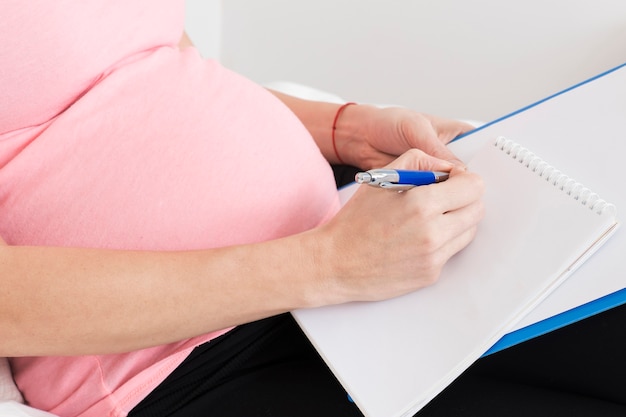
Chorionic Villus Sampling (CVS) is a diagnostic test doctors might suggest during the first trimester of pregnancy to check for genetic issues in a developing fetus. Unlike common pregnancy tests like ultrasounds or blood tests, CVS is only recommended in specific situations when there’s a significant need to determine the fetus’s health or potential inherited health problems.
One main advantage of the CVS test is that it allows parents to make informed decisions about whether to continue with the pregnancy, especially if a severe genetic disease or birth defect is detected.
The CVS test results generally come back within 7 to 10 days. The procedure involves inserting a thin needle through the uterus to collect a small sample of cells from the placenta. These cells, which contain the fetus’s genes, are then analyzed in a lab to detect any abnormalities.
**Benefits of the CVS Test:**
**Early Detection:**
The CVS test is typically done between the 10th and 12th weeks of pregnancy. At this stage, the fetus is still developing, and the test can identify genetic problems early on. This is crucial for parents with a family history of genetic issues, enabling them to make early decisions on child care and pregnancy.
**Informed Parenting:**
If the test finds genetic disorders, parents can plan for their child’s medical needs in advance. This is particularly important if the parents or close family members have known genetic conditions. Early detection means treatment and precautions can start while the baby is still in the womb, potentially reducing the impact of the condition after birth.
**Decision Making:**
The results of the CVS test can also help parents decide whether to proceed with the pregnancy. If serious defects are found, parents might consider terminating the pregnancy to avoid lifelong health problems for the child and significant emotional and financial strain for the family.
**Risks Associated with CVS:**
**Miscarriage:**
One of the main risks of the CVS test is a slight chance of miscarriage, affecting about 1 in 100 to 200 cases. The fetus is very delicate, and the procedure’s invasive nature can pose this risk.
**Infection and New Diseases:**
Inserting a needle into the uterus can potentially introduce infections or even cause new health issues for the unborn baby. Although rare, these risks are present.
**Birth Defects:**
If conducted before the 10th week of pregnancy, there’s a risk of causing defects, such as issues with the baby’s toes and fingers. It’s crucial to have the CVS test between the 10th and 12th weeks to minimize these risks.
**Vaginal Bleeding:**
Some women experience vaginal bleeding after the CVS test, which can be concerning for both the mother and the baby. In rare cases, the baby’s blood entering the mother’s bloodstream can cause complications, particularly if the mother has an Rh-negative blood type.
**Cost of CVS:**
The CVS test is quite expensive and not as readily accessible as other pregnancy tests. It is only recommended if there are substantial health concerns or if the mother has had an incident that could affect the fetus. Due to its high cost and the expertise required, it’s not a routine test for all pregnancies.
**Importance of CVS:**
The CVS test is crucial for detecting biochemical and hereditary anomalies. By analyzing a small sample of placental cells, the test can identify conditions like cystic fibrosis and Down syndrome early on, potentially saving the child from severe health problems in the future. It’s especially vital for older pregnant women (35 years or older) due to the increased risk of chromosomal issues.
Women with a history of babies born with defects, or those with a family history of genetic conditions, should consider the CVS test. It provides clarity on the baby’s health and can guide decisions on continuing the pregnancy.
Always consult with a doctor before deciding on the CVS test, considering both its benefits and associated risks.